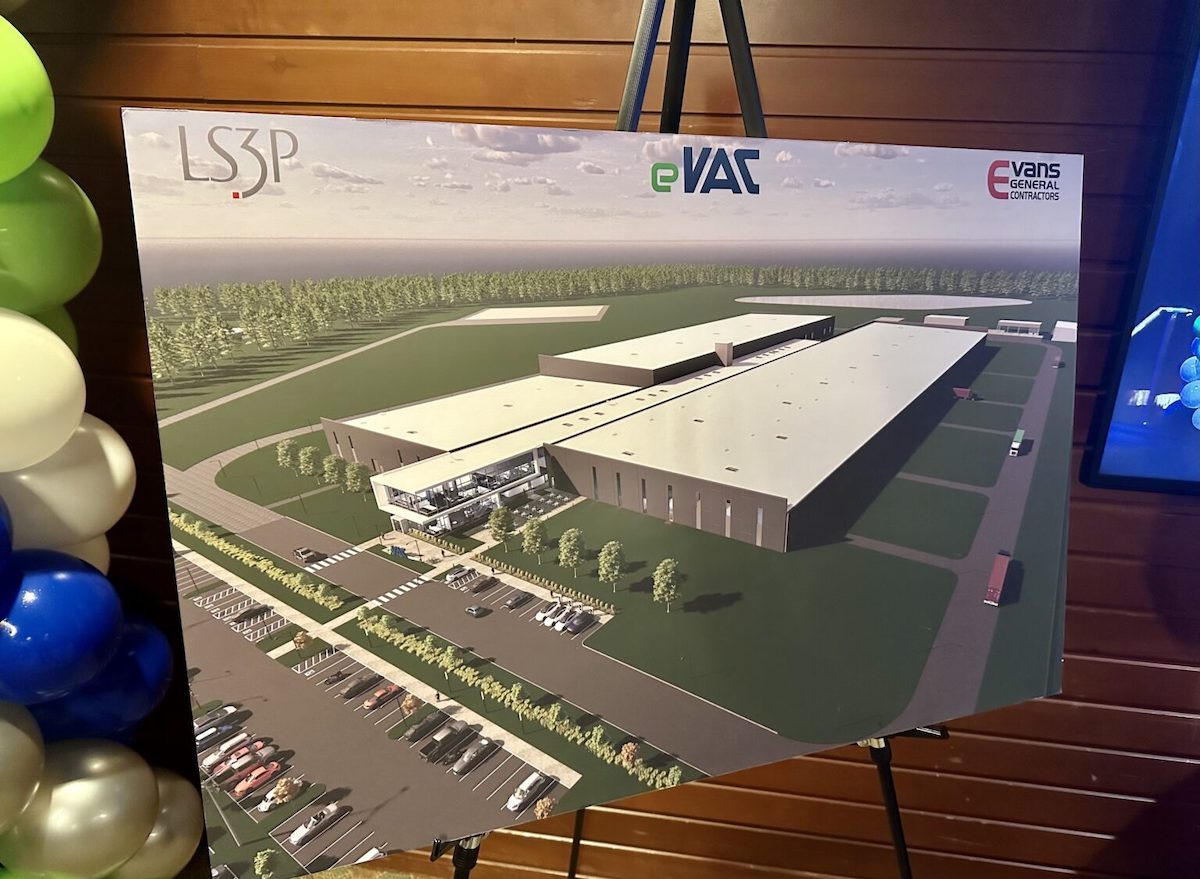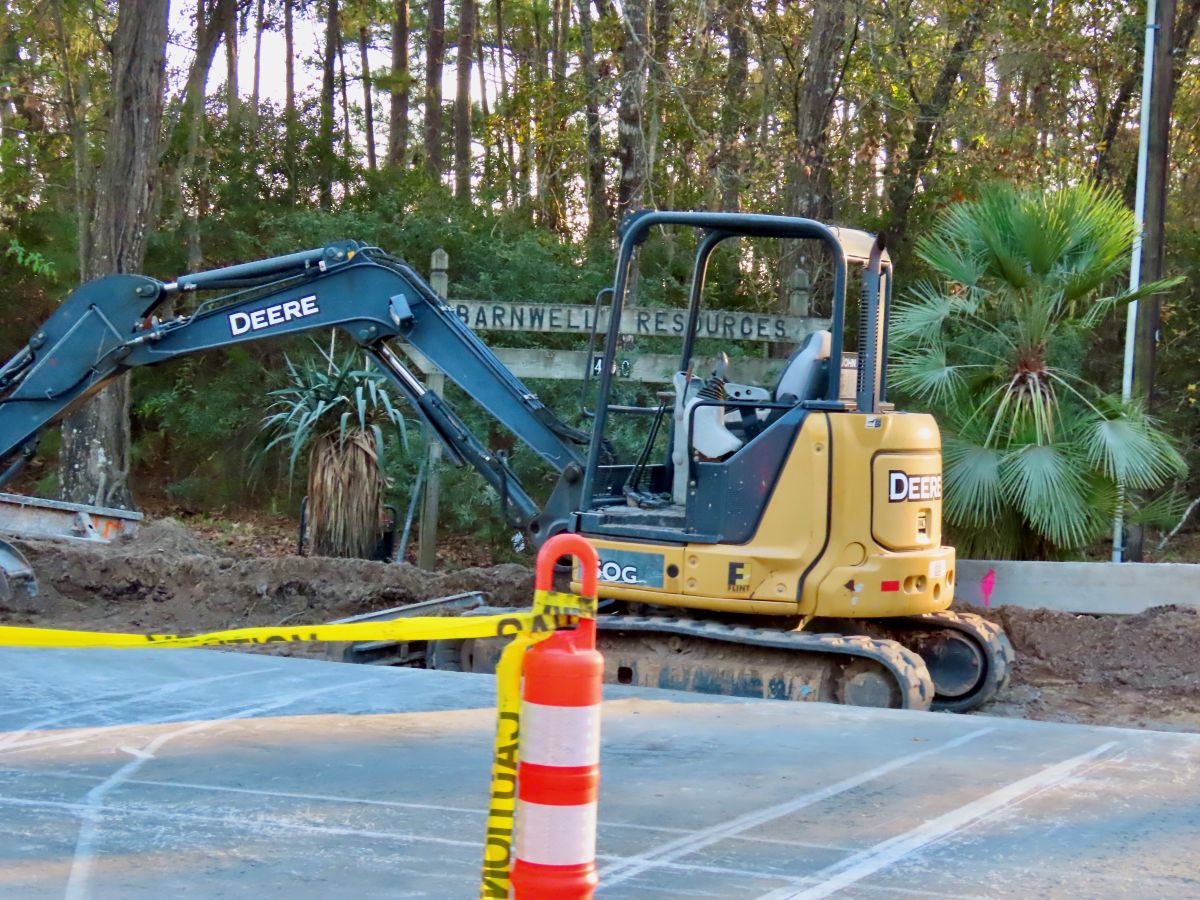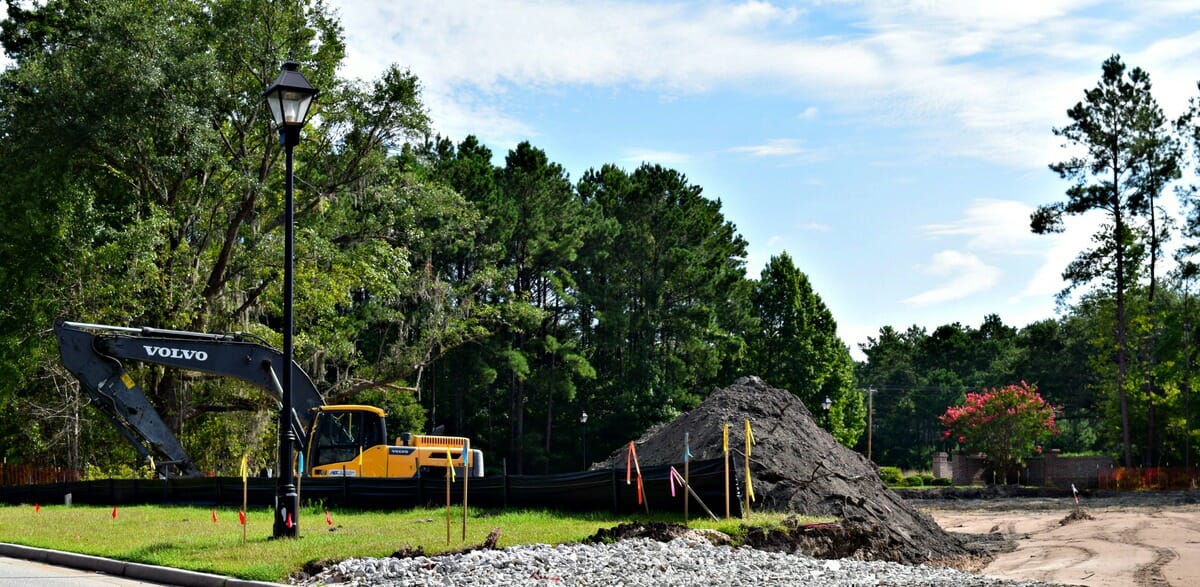SC Commerce Secretary Lightsey: ‘I think the momentum in the industry is irreversible’
By Jessica Holdman
SCDailyGazette.com
COLUMBIA – At least 10,600 South Carolinians are expected to go to work at new, high-paying jobs in the electric vehicle industry over the next decade.
In the past two years, a dozen companies have pledged to invest upwards of $11.7 billion as the auto industry shifts from gas to electric-powered vehicles.
“We are cruising into the future,” Gov. Henry McMaster told a crowd gathered inside the Sumter Opera House on Dec. 13.
That afternoon a German electric engine component maker, e-VAC Magnetics, announced it was setting up shop just outside the Midlands town. The company plans to build a $500 million plant and employ 300 people.
While the VAC Group has more than 1,000 products on its books, the biggest portion of its business at the moment is in electric vehicles and electric vehicle charging, said CEO Erik Eschen.
The company, which makes specialized magnets composed of rare earth elements, plans to begin production in 2025.
The e-VAC announcement came just a day after a Japan-headquartered firm officially doubled down on its South Carolina investment years before its plant even begins operations.
Envision Automotive Energy Supply Co., which will make battery cells for electric vehicles produced by BMW at its plant near Greer, plans to hire more than 1,600 workers total to run its $1.6 billion facility.
The average wage at the AESC plant will be $65,000. Production at the Florence facility, 180 miles southeast of BMW, is set to start in 2026.
Record investment
One year earlier, the electric vehicle industry also was behind the single largest economic development announcement in state history.
Nevada-headquartered battery recycler, Redwood Materials, is investing $3.5 billion in rural Berkeley County and promises to hire 1,500 workers. Hourly pay will range from $27 to $75, the company told reporters in December 2022.
Founded in 2017 by a former Tesla executive, Redwood plans to produce anode and cathode materials, enough to power 1 million vehicles annually by 2025 and 5 million annually by 2030.
Other electric-vehicle companies investing in South Carolina include:
- Scout Motors — The Volkswagen subsidiary, which is reviving the vintage truck and SUV brand in all-electric form, is building a $2 billion assembly plant north of Columbia. It will employ at least 4,000 workers and could eventually double both its investment and employment. Scout is promising wages ranging from $58,000 to $100,000, depending on the position.
- Albemarle Corporation — The Charlotte-headquartered company plans to employ 300 people processing lithium hydroxide for batteries at its planned $1.3 billion “Mega-Flex” plant near Richburg in Chester County. The company told reporters it will offer an average annual pay of $93,000. The new facility will produce 50,000 metric tons of the material annually. Construction will begin in 2024.
- BMW — The German automaker was the first major manufacturer to come to the state about 30 years ago, when South Carolina was struggling from the loss of the textile industry to overseas markets. BMW broke ground June 27 on a battery assembly plant near Woodruff in Spartanburg County, where it will employ 300 workers. Between the Woodruff plant and improvements to its existing Upstate facility, the company will invest $1.7 billion related to electric vehicles.
- ZF Group — The transmission maker, headquartered in Germany, has been a staple in Laurens County for years. But as it seeks to keep up with the shifting auto market, ZF pledged to add 400 employees to its existing 2,000-person workforce and invest $500 million to build a new kind of transmission system suitable for electric vehicles.
- Cirba Solutions — The lithium-ion battery recycler will employ 300 people on the south side of Columbia, investing $300 million to build a facility at Pineview Industrial Park. The Charlotte-based company said it will produce enough material for 500,000 electric vehicle batteries annually.
- Bosch — A long-time employer in South Carolina, Bosch is launching a new electric motor production line at its Dorchester County facility. It’s investing $260 million and pledges to hire 350 more people.
- BorgWarner — The company announced April 19 that it will start building electric vehicle battery systems at its Oconee County facility. The Michigan-headquartered company is investing $43 million in the changeover and will hire 122 new workers.
- ABB E-mobility — U.S. Energy Secretary Jennifer Granholm stopped June 27 at the South Carolina manufacturing site of this electric vehicle charger company, touting the Biden Administration’s Clean Energy efforts. Switzerland-based ABB announced in September 2022 it would invest $4 million to buy manufacturing equipment for a West Columbia facility, putting 100 people to work building charging stations.
- Volvo — The Swedish automaker has made a string of electric-vehicle related investments in South Carolina. In June 2021, it announced it would build the Polestar 3, a subsidiary brand, at its plant in Ridgeville, Dorchester County, spending $118 million on the new manufacturing line. Then, in February 2023, the company said it would hire 1,300 more workers to build its all-electric EX90. Most recently, Volvo picked up Proterra, a battery-maker in Greer, for $210 million after the battery company filed for bankruptcy.
Much of this investment came on the heels of the Biden Administration’s hallmark clean energy legislation. President Joe Biden signed into law the Inflation Reduction Act on Aug. 16, 2022, which extended personal income tax credits for purchases of electric vehicles that meet set standards for vehicle parts produced in the United States.
Gov. Henry McMaster also was an early proponent of the industry. In October 2022, he called for the state to ready itself for electric-vehicle production.
A vital industry
For future investment, the head of South Carolina’s economic development agency is eyeing more electric vehicle and battery components producers.
Last year, South Carolina’s three vehicle manufacturers assembled roughly half a million gas-powered vehicles at their facilities here. But just a quarter of their total sales value came from parts made in South Carolina. The biggest expense of those vehicles — the gas engines — came from overseas.
Commerce Secretary Harry Lightsey is hopeful a shift to electric will net South Carolina a bigger share — meaning more jobs and more taxes for state coffers.
“If you think about it, there’s a whole different supply chain for the electric vehicle,” he said. “There’s a supply chain for batteries just by themselves. Those are all businesses that we’re very interested in having in South Carolina.”
The automobile industry has become vital to the Palmetto State, employing more than 75,000 South Carolinians, Lightsey said. Auto manufacturing employment in South Carolina jumped 186% between 2010 and 2020, pulling up the state’s overall rate of growth.
“It’s critically important, as (automakers) pivot from the internal combustion engine to the battery electric vehicle, that we be part of that,” Lightsey said.
Shifting demand
The majority of vehicles assembled in South Carolina are exported and the state must respond to changes in global demand, said Joey Von Nessen, an economist at the University of South Carolina.
Purchases of new electric vehicles are highest in China, the world’s largest auto market, followed by the European Union. In China, sales increased 29% year-over-year as of September, Reuters reported. In Europe, sales were up 26%.
On the other hand, U.S. automakers Ford and General Motors have pulled back on electric vehicle spending, causing a ripple of concern about the adoption of electric.
Von Nessen thinks the lag in demand is related to high interest rates being used to curb inflation in the U.S.
Electric vehicles are still a luxury good. As the cost of borrowing rises, these types of goods are typically hit first, he said.
How quickly Americans make the switch to electric is hard to predict, Lightsey said, but he hasn’t lost confidence in the industry.
“I think the momentum in the industry is irreversible,” Lightsey said. “Huge investments are being made. And those kinds of investments don’t get made unless an irreversible trend is being established.”
Jessica Holdman writes about the economy, workforce and higher education. Before joining the S.C, Daily Gazette, she was a business reporter for The Post and Courier.











